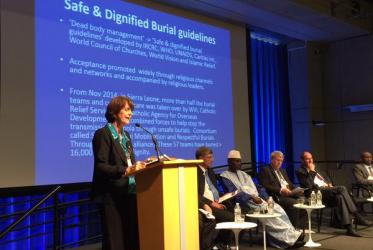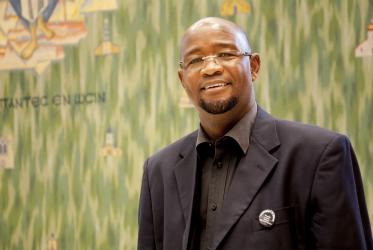Displaying 361 - 380 of 443
10 March 2016
Tveit on the “Ten Commandments” of food
26 January 2016
New video presents Ecumenical Advocacy Alliance’s call to action
13 January 2016
In Albania, churches’ share of health care has grown in new era
23 December 2015
Consultation considers right to food in context of climate change
15 December 2015
Person with disability shares reflection on AIDS conference
10 December 2015
Placing family in the HIV response vanguard
10 December 2015
COP21: how climate change affects access to our daily bread
09 December 2015
Faith leaders urge action at UN climate talks
02 December 2015
Overcoming discrimination to address HIV in Zimbabwe
11 November 2015
Church activists address HIV and AIDS in Kenya
26 October 2015
No place for hunger in a world of abundance
02 October 2015
WCC group evaluates ecumenical HIV and AIDS response
29 June 2015
WCC considers AIDS report a “valuable tool”
26 June 2015
Churches need to do more to tackle HIV and AIDS
23 June 2015












